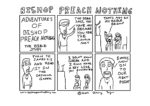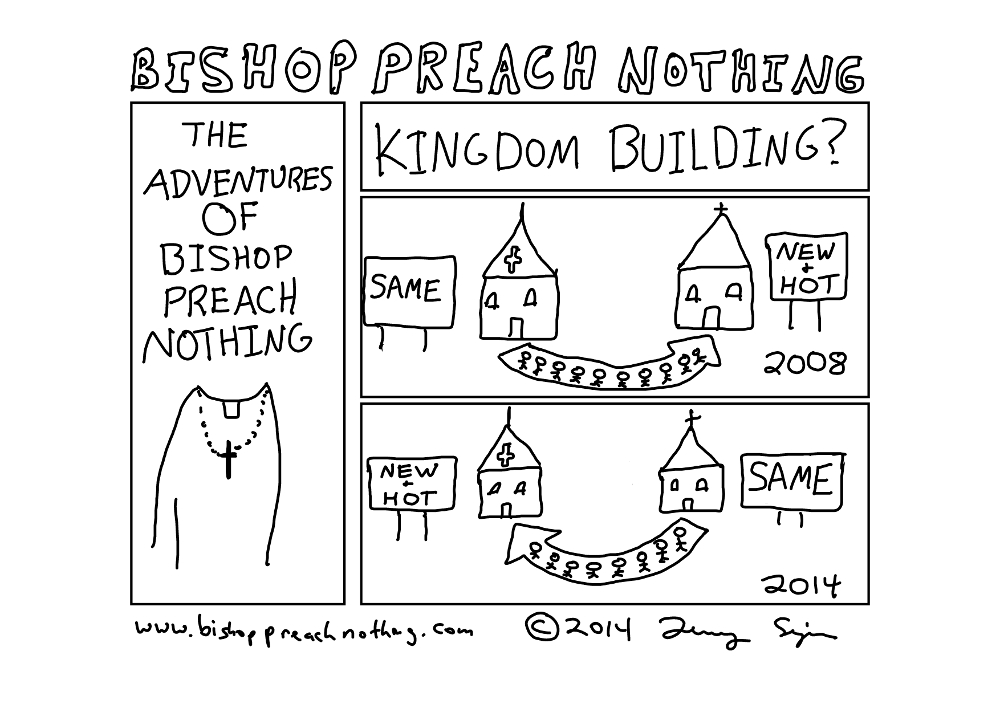As an Amazon Associate I earn from qualifying purchases.
BiblicalPreaching.Net has an interesting post up on the use of commentaries in your preaching. You can find the link to the Biblical Preaching Post here. Mead, the author of the article, notes that preachers should recognize that the commentary was written to an audience that probably doesn’t look like your congregation. In addition, the discussion can be quite complex.
 Mead, in the same article, gives two important principles for using commentaries. Number 1, Only quote exceptionally valuable sections. And number 2, don’t feel as though you need to reference every quote.
Mead, in the same article, gives two important principles for using commentaries. Number 1, Only quote exceptionally valuable sections. And number 2, don’t feel as though you need to reference every quote.
Sermon Is Not A Lecture
All of Mead’s points can be summarized in this simple point: “The sermon is not a Lecture on Religious Topics to an Academic audience.” I have attempted to state this in many different ways over the life of this website. Preachers are not trying to merely inform the hearer. The preacher is being a vehicle to usher the people into an encounter with the Most High God.
Now I do not wish to belittle the use of commentaries. I think they can be helpful in the preparation process, but go to the commentaries AFTER you have squeezed all out of the text you can get from reading the scripture and comparing the scripture with other scriptures. However, in Presentation, quoting commentaries will often detract from the message.
What About Giving A Reference
As for referencing where you got the information. I do think we should be careful not to take credit for ideas that we got from somewhere else. Just give a quick statement that “in my reading this thought came through powerfully.” Or you might say, “One of my favorite authors said….” I do think it is important to reference other folks, but realize that this is not a theological paper.
Using commentaries can be helpful to preachers. I emphasize again, IN PREPARATION. However, IN PRESENTATION, we must recognize that the commentary was not meant to be a sermon manual.
Amazon and the Amazon logo are trademarks of Amazon.com, Inc, or its affiliates.








I AGREE 100 PERCENT. I USE THE COMMENTARIES SOMETIMES FOR PREPARATION, ESPECIALLY IF I NEED TO MAKE SURE THAT I AM
ON THE RIGHT TRACK WITH THE THOUGHTS THAT ARE BEING REVEALED
TO ME. THE COMMENTARIES ARE GREAT, BUT FOR ME THEY ARE JUST
AN “AMEN” WITTEN BY “A MAN” TESTIFYING TO WHAT THE HOLY SPIRIT
HAS ALREADY REVELAED.
THANKS FOR THIS POST, AND KEEP UP THE GOSPEL WORK
Thanks for the information on commentaries, I am not a big user of commentaries but sometimes they do provide very helpful information when I am preparing for a sermon. Again, thanks for the helpful information that this website provides. I have received so much insight since I have encountered soulpreaching.com. May God continue to bless you and the work that you do for the kingdom of God!
Commentaries, as well as theological works, are indispensible resources in the final phase of exegesis. They do provide a corrective to possible misinterpretation, and often provide an insightful quote or perspective that the untrained preacher may overlook. We must NOT preach the commentaries! God’s peculiar engagement with you and with the congregation THROUGH you need not be mediated through a commentary. They are “conversation partners” as we mine the wisdom of the ages, but never forget that God can and will speak directly to and through you.
Good piece of reading. So we can use commentaries for research too?
Biblical Commentaries are helpful in research but are more preferable deployed to give a more indepth meaning to the Holy Scripture and its contextual meaning to the reader.
Preach it brother!
Let’s first define Commentaries broadly as reference material used. This can include traditional commentaries (John MacArthur, Matthew Henry, Warren Wiersby), Greek/Hebrew studies (Marvin Vincent, Archibald Robinson, Kenneth Wuest) and writers in general (C.S. Lewis, TD Jakes.) We all stand on the shoulders of those who went before us.
I agree with the author. Commentaries are good for research, but in the midst of the preaching process, there is a desire for the proclaimer to help others to see the power of the cross instead of having to hear of someone’s intellectual gymnastics.
I agree with your assessment on commentaries. If a preacher is not careful he can become as John MacAuthur says a “commentary cripple”. I find that after reading the text several times, meditating, and doing some word studies I am able to get what the Lord is giving me. Some times I use the commentaries as friends. I say : what do you say about this John, Warren, William etc. I thank God for the scholarship of these men of God.
I agree that is is helpful to go to the commentaries AFTER you have squeezed every ounce of information from the scriptures and other resources. I find that the more you know about your choosen scripture, it may not be necessary to use the commentaries at all.
I truly enjoy this website ,its very useful to preachers. I like commentaries for historical background, cultural information and to see if l am on the right thought according to the interpretation. Keep up the good work for the sake of us preachers.
I am new in the Ministry but I only use the commentaries after I have gleaned as much as I can from the scripture. The commentary is a guide to help me know that I am using the Word in the correct way and to let others know that there is a God who see and know all.
Thanks so much for this site and may God continue to Bless you.
Pastor Haywood
I enjoy reading the information that you give out and also the e-books that are free but one thing I would like and that is To Have You personally preach a sermon showing how these different techniques are actually performed. Not manuscript but in actual sermon you priest that I and others may be able to listen to for ourselves.
Thank you pastor Leland Barber
I do think that commentaries can be helpful understanding hard to understand scriptures. But I agree that quoting them in a sermon does more harm than good. I say this because I know that God is not pleased with the ways we choose to worship him. The first problem with quoting commentaries is that they are foreign testimonies. One would think that there were someone in the assembly of the saints worthy of the same. This psychology is actually a form of segregation, debasing the character of the assembly; when the assembly is suppose to be an assembly of saints, all on the same level in God’s sight. The fact is that it was commentaries that caused the Lord to be crucified on the cross, according to Hebrews 10:16-23 and 2nd Corinthians 3:2, 3. God had to create a new way for His word to be written in our heart and our mind. We are to be living epistles acknowledging each other as such. For when did we see you Lord, both the sheep and the goats asked? He replied when you saw the least that was Me. By the way I believe that what you are doing is an asset to God. Keep up the good work.